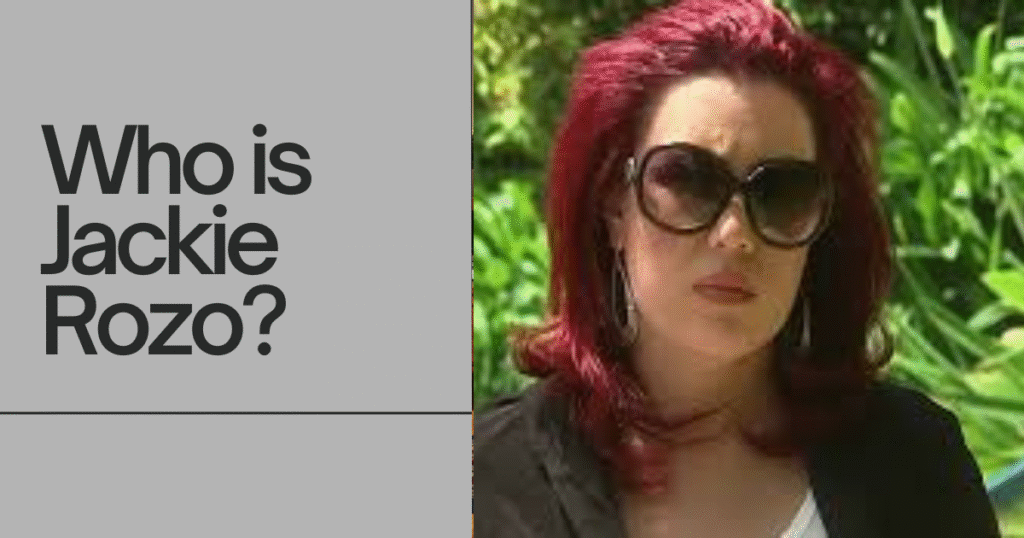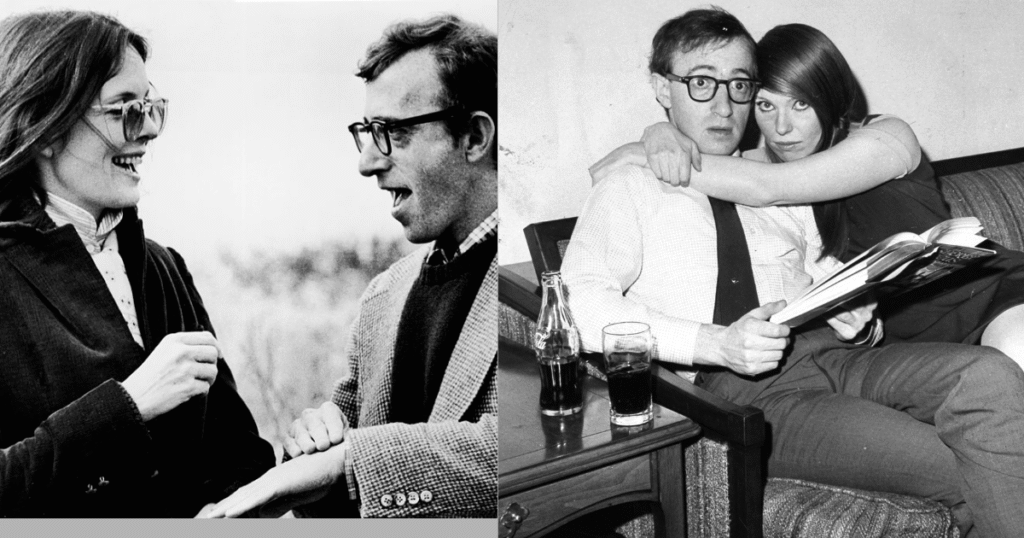
Charles Donald Fegert rose from humble Chicago beginnings to become Vice President of Advertising and Marketing at the Chicago Sun-Times. Though many remember him as Barbara Eden’s second husband, his professional achievements and complex personal life tell a much deeper story about a self-made businessman who shaped newspaper advertising during its golden era.
Quick Facts About Charles Donald Fegert
| Detail | Information |
|---|---|
| Full Name | Charles Donald Fegert |
| Date of Birth | November 8, 1930 |
| Date of Death | September 25, 2002 (Age 71) |
| Birthplace | Chicago, Illinois, USA |
| Nationality | American |
| Ethnicity | Caucasian |
| Education | Loyola University Chicago (Bachelor’s in Business Administration, 1955) |
| Profession | Advertising Executive, Businessman |
| Famous For | VP of Advertising at Chicago Sun-Times, Marriage to Barbara Eden |
| Marriages | Three (names: Unknown first wife, Trish Althaus, Barbara Eden) |
| Children | Four (Michael Fegert, Chip Fegert, Lisa Fegert, and one other) |
| Net Worth | Estimated $2.5 million at death |
Who Was Charles Donald Fegert?
Charles Donald Fegert was born in 1930 and lived until 2002, passing away at the age of 71, and was known for his work with the Chicago Sun-Times. He built his reputation as an advertising pioneer who transformed newspaper marketing strategies during a critical period in the industry.
While marriage to Barbara Eden brought him into the public eye, his career and personal life were marked by significant achievements and challenges. Beyond the celebrity spotlight, Charles was a dedicated father, successful businessman, and charismatic personality who left lasting impressions on everyone he met.
Early Life and Background
Charles Donald Fegert’s early years were deeply shaped by his working-class roots in Chicago, growing up on the city’s South Side as the son of a steelworker. This environment instilled values of hard work, discipline, and perseverance from a young age.
Attending South Shore High School, Charles was exposed to the realities of a tough neighborhood, yet he aspired for more than the factory life that awaited many in his community. The steel mills and industrial landscape of 1930s and 1940s Chicago formed the backdrop of his childhood, teaching him resilience and determination.
Despite limited resources, his family prioritized education and encouraged ambition. Charles learned early that success required dedication, strategic thinking, and the ability to connect with people—skills that would define his career.
Education and Foundation Building
After graduating high school, he pursued higher education at Loyola University, where he graduated in 1955. His college years provided the formal business training and communication skills that complemented his street-smart upbringing.
His college years helped lay a strong foundation for his future career, equipping him with knowledge and skills in business and communication. This combination of practical experience and academic credentials gave him unique advantages in the competitive advertising world.
Before and during college, Charles worked various jobs to support himself. He began by working in the mills and afterward served in the Coast Guard. These experiences taught him discipline, leadership, and how to work with diverse groups of people.
Career Beginnings at Chicago Sun-Times
Charles Donald Fegert started his career in the 1950s at the Chicago Sun-Times as an advertising salesman. This entry-level position became his launching pad to greater success.
From the very beginning, he showed a strong ability to connect with clients and understand their needs. Unlike typical salesmen who simply pushed products, Charles took time to understand each business and crafted advertising solutions that delivered real results.
He didn’t just sell ads — he built relationships, helped businesses grow, and gained a reputation for being sharp and reliable. His approach was consultative rather than transactional, which set him apart in Chicago’s competitive media landscape.
His sales numbers consistently exceeded expectations. Clients appreciated his honesty, creativity, and genuine interest in their success. This reputation for excellence caught the attention of senior management.
Rise to Vice President of Advertising
Charles Donald Fegert worked hard and moved up quickly at the Chicago Sun-Times, showing great skill in understanding what clients wanted and creating successful advertising campaigns. His promotional trajectory was remarkable for someone without family connections in the industry.
Because of his dedication and smart ideas, he was promoted several times until he became the Vice President of Advertising and Marketing. This role put him at the highest levels of one of Chicago’s most influential newspapers.
In 1969, he was hired by the Daily News, where he continued applying his proven strategies. Charles had already been promoted from salesperson to store advertising and to advertising manager from Sun-Times retail advertising at the time.
His success didn’t go unnoticed, and people in the business world respected him as not just a “boss” but a teacher and leader. One friend even called his style “management by charisma”—he inspired rather than commanded.
People Also Love to Read This: Jan Ashley Biography: The Untold Story of Robert Kardashian’s Second Wife
Leadership Style and Business Philosophy
He didn’t yell or give orders — he inspired people, showing his team how to sell, how to talk to clients, and how to get results. His approachable management style created loyalty and motivated employees to exceed expectations.
He was known for being confident, charming, and always well-dressed. Charles understood that presentation mattered in business, and he carried himself with professionalism that commanded respect.
He believed in developing talent rather than micromanaging. His team members often credited him with teaching them skills that benefited their entire careers. This mentorship approach built a network of professionals who remained loyal long after working with him.
Business Ventures Beyond Newspapers
While his primary fame came from the media industry, Charles Fegert was also an astute businessman who applied his marketing expertise to other fields, notably real estate. His entrepreneurial spirit extended far beyond his day job.
He demonstrated a sharp financial sense and used his understanding of branding, partnerships, and client relationships to succeed in property development and other business ventures. His investments diversified his income and built substantial wealth over time.
He also earned money through other businesses, including restaurants, disco clubs, and even oil well investments. These ventures showed his willingness to take calculated risks and explore opportunities beyond his comfort zone.
Master of Ceremonies and Public Persona
In addition to corporate roles, Fegert was a skilled master of ceremonies, known for his ability to entertain and engage audiences at various events throughout Chicago. This side of his personality revealed his charisma and comfort in the spotlight.
His charisma and talent made him a sought-after figure in the city’s social scene. Whether hosting charity galas or corporate events, Charles commanded attention and made every occasion memorable.
His daughter Lisa once shared how much fun her dad was, saying he would sing, do impressions, and always made people laugh. This playful side contrasted with his serious business persona, showing his multifaceted personality.
First Two Marriages
Before meeting Barbara Eden, he had been married twice and was the father of a daughter and two sons. His personal life before Hollywood remained relatively private.
For starters, no information is available about his first wife. This marriage ended in divorce, though details remain scarce.
He fell in love with Trish Althaus after divorcing his first wife, and Trish was a model in her early twenties. Their relationship brought together two attractive, successful young people navigating Chicago’s social scene.
After dating for a few years, he married her at Kraft Chapel’s North Shore Baptist Church. The couple had two children, but his second marriage ended in divorce in the 1970s. The pressures of his demanding career and personal issues contributed to the marriage’s failure.
Meeting Barbara Eden
He met Barbara Eden in 1974 while she was performing in Chicago. At that time, Barbara was already a television icon thanks to her starring role in “I Dream of Jeannie.”
Despite not having seen her famous sitcom “I Dream of Jeannie,” he was captivated by her charm and beauty. Charles’s lack of familiarity with her work actually worked in his favor—he saw Barbara the person, not just the celebrity.
The marketing executive revealed that he had flown over 30 times to see her. This persistent courtship demonstrated his serious intentions and willingness to invest time and resources into the relationship.
After a four-year courtship, the couple began dating and married on September 3, 1977. The wedding joined Chicago’s advertising elite with Hollywood royalty, generating significant media attention.
Marriage to Barbara Eden
Their marriage, however, was fraught with challenges, including Fegert’s struggles with substance abuse and allegations of domestic violence. What began as a romantic fairy tale gradually deteriorated into a troubled relationship.
Initially, he wooed Eden with grand gestures, such as sending her flowers twice daily. These lavish displays of affection characterized the early honeymoon period.
However, after their marriage, the relationship began to deteriorate as Eden later revealed that his behavior changed as he became involved with people who drank and used drugs. This lifestyle shift created tension and conflict in their home.
Eden described Fegert as a brilliant and talented salesman, albeit one who was insecure and constantly sought attention. His need for validation and struggle with personal demons undermined the marriage.
Charles and Barbara were together until 1983, when they finalized their divorce. The five-year marriage ended without children between them, though Barbara had a son from her previous marriage.
Life After Divorce
After divorce from Barbara Eden, Charles Donald Fegert continued to live a relatively private life. He stepped away from the public spotlight that had briefly illuminated his personal affairs.
After his split from Barbara Eden, Charles Donald Fegert stepped out of the spotlight. He focused on his children, grandchildren, business interests, and personal recovery.
His post-divorce years allowed him to rebuild relationships with family and rediscover the person he’d been before Hollywood entered his life. Friends from this period remember him as reflective, generous, and devoted to his grandchildren.
Children and Family Life
Even though his marriage to Barbara Eden didn’t last, Charles Donald Fegert had a full family life and was married three times in total. His legacy extended through his children and grandchildren.
In total, Charles had at least four kids — including two sons named Michael and Chip and a daughter named Lisa. Each child carved their own path while carrying lessons learned from their father.
He was also a grandfather to seven grandchildren, and they loved being around him. His role as grandfather brought him immense joy and allowed him to be playful and present in ways his demanding career hadn’t always permitted.
When he was with his grandkids, he would teach them funny songs, and they’d all sing together at the table. These moments of connection and laughter defined his later years and created treasured family memories.
People Also Love to Read This: Billy Bernthal: Biography, Family Life, and Growing Up with Jon Bernthal
Net Worth and Financial Success
However, sources estimated his net worth to be around $2.5 million at the time of his death. This wealth reflected decades of successful business ventures and strategic investments.
Although his net worth has not been disclosed, he has undoubtedly amassed a substantial fortune as the advertising vice president of two significant firms. His high-level positions commanded impressive salaries throughout his career.
As Vice President of Advertising and Marketing at both the Chicago Sun-Times and the Daily News, he earned a solid income over many years. His compensation reflected his value to these major publications and his track record of generating revenue.
His diversified investment portfolio—including real estate, restaurants, and other ventures—supplemented his corporate income and built lasting wealth. Unlike many executives who relied solely on salary, Charles understood the importance of multiple revenue streams.
Death and Legacy
Charles Donald Fegert peacefully died in his sleep in Chicago in 2002 at 72. His passing marked the end of an era for those who knew him.
His death was attributed to natural causes related to ageing, leaving behind a legacy in the advertising industry and the memories of his loved ones. Family and friends gathered to celebrate a life filled with professional accomplishment and personal complexity.
After he died, his grandchildren gathered to sing the songs he had taught them. This touching tribute captured the warmth and joy he brought to those closest to him.
He is remembered as a pioneer in newspaper advertising who helped shape marketing strategies and grow the Chicago Sun-Times during his tenure. His professional innovations influenced advertising approaches that extended beyond his lifetime.
Personal Character and Reputation
He was a self-made success, rising from a working-class background to lead some of the biggest advertising teams in the country. His journey embodied the American dream of upward mobility through talent and determination.
Those who worked with Charles remember a man who balanced confidence with approachability. He could command a boardroom yet make a junior employee feel valued. This rare combination of authority and accessibility defined his leadership.
His struggles with substance abuse and personal demons don’t erase his professional achievements or the positive impact he had on many lives. Charles’s story reflects human complexity—success and failure, strength and weakness, public triumph and private pain all coexisting in one life.
Charles Fegert’s Impact on Advertising
Charles revolutionized how Chicago newspapers approached advertising sales during the 1960s and 1970s. Rather than treating ad space as a commodity, he positioned it as a strategic business solution for clients.
His client-focused methodology influenced advertising practices throughout the industry. Many advertising executives who trained under him carried his principles into their own careers, extending his influence across decades.
The Chicago Sun-Times experienced significant revenue growth during his tenure, partly attributable to his innovative approaches and client relationship management. His contributions helped the newspaper thrive during challenging times for print media.
Relationship with Barbara Eden’s Son
Unfortunately, the actress could not move with her son, Matthew Ansara, because her ex-husband had filed for custody of him, and her son wanted to stay back where he had friends. This custody arrangement affected Charles’s relationship with Barbara’s son.
Matthew Ansara, Barbara’s son from her first marriage, faced his own struggles with substance abuse and tragically died from a drug overdose in 2001—just a year before Charles’s death. The parallel tragedies of addiction affecting both Charles and Matthew reflect the serious challenges this family faced.
FAQs About Charles Donald Fegert
Q: How did Charles Donald Fegert meet Barbara Eden?
Charles met Barbara Eden in 1974 when she was performing in Chicago. Despite not being familiar with her famous sitcom “I Dream of Jeannie,” he was immediately attracted to her. He pursued her persistently, flying over 30 times to see her during their courtship before they married in 1977.
Q: What was Charles Donald Fegert’s profession?
Charles was a successful advertising executive who worked his way up from salesman to Vice President of Advertising and Marketing at the Chicago Sun-Times and Chicago Daily News. He was known for his charismatic leadership style and ability to create effective advertising campaigns that helped businesses grow.
Q: How many times was Charles Donald Fegert married?
Charles was married three times throughout his life. His first wife’s identity remains unknown. His second wife was Trish Althaus, a young model with whom he had two sons. His third and most famous marriage was to actress Barbara Eden from 1977 to 1983.
Q: How many children did Charles Donald Fegert have?
Charles had at least four children—two sons named Michael and Chip, a daughter named Lisa, and one other child. He was also a proud grandfather to seven grandchildren who remembered him fondly for teaching them songs and making them laugh.
Q: What was Charles Donald Fegert’s net worth when he died?
Charles Donald Fegert’s net worth was estimated at approximately $2.5 million at the time of his death in 2002. He accumulated this wealth through his high-level advertising positions, real estate investments, and various business ventures including restaurants and oil well investments.









